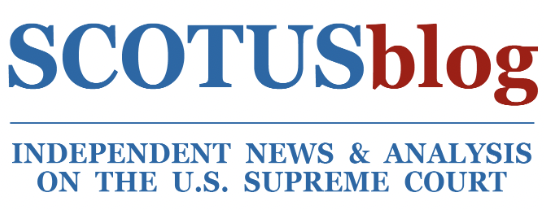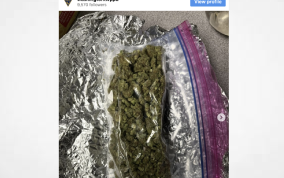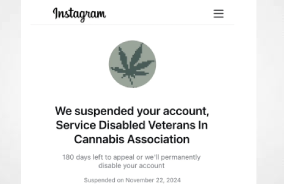Yahoo News
Trucking issues don’t often make it in front of the nine justices of the U.S. Supreme Court. But on Tuesday they heard arguments in a case involving the complex legal questions surrounding truck drivers and marijuana use.
The case of Douglas Horn, a former driver with New York-based Enterprise Transportation Co., was before the court to determine whether harm he suffered as a result of his 2012 dismissal after failing a drug test – even though he did not use marijuana – qualifies for triple damages under the Racketeer Influenced and Corrupt Organizations Act (RICO).
As such, arguments by attorneys for Horn and the three companies under the banner of Medical Marijuana, makers of a CBD product called Dixie X that Horn ingested, did not center on some of the big-picture questions surrounding marijuana use and testing that have arisen in trucking as legalized recreational marijuana spreads across the U.S. But even if a failed marijuana test that cost a driver his livelihood was not the primary focus of the Supreme Court arguments, the issue came up during the hourlong session.
It started with a 2012 crash
Horn, dealing with pain that resulted from a 2012 crash, said he took Dixie X after doing research on the product, which contains cannabidiol. CBD is touted for pain relief. His decision to take Dixie X was buttressed by assurances from Medical Marijuana that the product did not contain tetrahydrocannabinol (THC), the ingredient in marijuana that is targeted in testing.
After taking Dixie X, Horn flunked a marijuana test and was fired in October 2012. His wife, Cindy, who had driven with him as a team driver, was not comfortable on the road without him so she quit her job.
A federal court in New York dismissed most of the claims filed by Horn in 2015 against Medical Marijuana and its affiliated companies. Those included the claim that Medical Marijuana’s actions touting its product as THC-free – when Horn’s positive test suggested that was false – constituted a violation of RICO law. A RICO finding would open the door to a court tripling any potential financial penalty it would impose on Medical Marijuana.
The lower court let stand the claim against Medical Marijuana of “fraudulent inducement.”
The 2nd U.S. Circuit Court of Appeals previously summed up the question of whether Horn could proceed with a RICO claim – the question that the Supreme Court is now considering. The U.S. District Court for the Western District of New York, the 2nd Circuit wrote, “held that Horn lacked RICO standing because he sued for losses – in particular, his loss of earnings – that were derivative of, or flowed from, an antecedent personal injury.” Injury is not a basis for a civil RICO action, but damages are.
20231003113224638_Horn Petition for Certiorari (1)
20240709134602993_Horn Brief for Petitioners (1)
ARGUMENT ANALYSIS
Supreme Court considers truck driver’s RICO case over CBD product that cost him his job
The Supreme Court heard oral arguments on Tuesday in the case of a truck driver who was fired from his job after a wellness product marketed as free of THC, the active ingredient in marijuana, caused him to fail a routine drug test. Douglas Horn sued the maker of the CBD product he took for chronic pain under federal racketeering law for economic harm.
But the companies that manufacture the product told the justices on Tuesday that because Horn’s injuries were personal, rather than harm to his business or property, they did not fall under the Racketeer Influenced and Corrupt Organizations Act. Of relevance here, RICO, a federal law initially passed to target organized crime, creates a private cause of action, which allows a person “injured in his business or property” by racketeering activity to recover triple damages.
Horn bought Medical Marijuana’s hemp-based Dixie X after reading that it contained CBD but no THC. CBD is completely legal but THC continues in some contexts to be illegal. When Horn failed a THC blood test, he was fired from his job and lost his insurance and pension benefits.
Horn sued, alleging that the makers of Dixie X had engaged in mail and wire fraud that caused him to suffer injury to “business or property.”
Lisa Blatt, representing the manufacturers, told the justices on Tuesday that Horn’s unwanted ingestion of THC was an injury to his body, a purely “personal” injury, and not an injury to “business or property.” Horn’s economic losses, she argued, are the “damages he sustain[ed]” because of that injury.
Easha Anand, representing Horn, argued that the lost employment plainly is an injury to “business” that should bring the case within the wheelhouse of RICO. The lower court agreed with Horn, permitting his suit to proceed, before the companies took the case to the Supreme Court.
The text of the civil RICO statute, the companies argued at the Supreme Court, unlike its criminal counterpart, plainly requires a plaintiff to be “injured in his business or property.” That language, they said, reflects an indisputable intention to exclude the only other major kind of injury the law recognizes – injury to the person (the kind of thing for which people hire “personal injury” lawyers).
Horn’s premise – that civil RICO is available if the “personal” injury leads to “business or property” damages – would have sweeping implications, the companies argued, making RICO available to any tort plaintiff who can produce a receipt for lost wages or other economic loss. And the Clayton Act, an important antitrust statute, Blatt told the justices, limits private suits to plaintiffs with injuries to “business or property,” for which the Supreme Court routinely has rejected personal injury claims. The same result, she argued, should apply here.
For Horn, though, “injured” is the same thing as “harmed,” and the harm he suffered to his business (loss of employment) is a classic injury to business of the type that the civil RICO statute reaches. Anand also emphasized that in RICO Congress made clear that the act “shall be liberally construed to effectuate its remedial purposes.” That rule of construction, she said, suggests that in the event of any doubt the court should permit Horn’s suit to proceed.
Although several of the justices peppered Blatt with tough questions about how to reconcile her argument with RICO’s text, the tone on Tuesday was often withering during Anand’s allotted time. Chief Justice John Roberts started early in Anand’s presentation to press the view that the “‘business or property’ limitation [was] intended to be a significant limitation on the reach of RICO,” something “pretty central to the heart of RICO,” and that her position seemed likely to vitiate that limitation.
Justice Brett Kavanaugh was even more pointed, criticizing the idea that Horn could “get around that limitation … by characterizing the lost wages or medical expenses as separate injuries to your business or property.”
And Horn’s position, Kavanaugh warned, would create “a dramatic, really radical shift in how tort suits are brought throughout the United States.”
As I suggested above, some justices – especially Justice Elena Kagan – challenged Blatt’s reading of the text. Kagan, for example, pushed Blatt to help her to “figure out … the most normal, natural reading of the statutory language.” But I don’t see that perspective carrying a majority when Roberts and Kavanaugh seem firmly settled against liability. There might be a dissent when the case is decided, but I doubt it will be a close one, and I really doubt if a majority will find its way to liability here.
Posted in Merits Cases
Recommended Citation: Ronald Mann, Supreme Court considers truck driver’s RICO case over CBD product that cost him his job , SCOTUSblog (Oct. 16, 2024, 4:37 PM), https://www.scotusblog.com/2024/10/supreme-court-considers-truck-drivers-rico-case-over-cbd-product-that-cost-him-his-job/
Supreme Court considers truck driver’s RICO case over CBD product that cost him his job




















